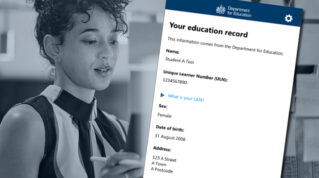How I wish English teacher, Mr Francis could see me now. It was his inspirational, expert teaching that first transformed dry printed words into revelations about the universal stuff of life. Learning how to read and write gave me the tools to study all the disciplines from history to physics to maths. I became the first person in my family to enter university. I’ve published four books and I’m a university Professor. I’ve even advised the Government on improving literacy. His infectious love of words transformed my life.
But I was one of the lucky ones. Which is why I get so enraged when every summer I see hundreds of thousands of pupils assessed at age 16 to have fallen short of basic standards in English language and maths. In practical terms this means many of our teenagers will leave school unable to digest a train timetable, compare the cost of products and services, or understand a medical prescription.
Put bluntly, our annual GCSE results should be a source of national shame. This year over a third of teenagers failed to gain a grade 4 in maths, while just under three in ten failed to gain a grade 4 in English language. And to add further salt to their wounds, pupils who achieve a grade 3 are required to re-sit their exams, which many fail again.
Yet this scandal is brushed under the carpet every summer. Teenagers jumping for joy with hauls of 8s and 9s distract the nation from their dejected peers, effectively labelled as failures at age 16. And when Liz Truss pitched herself as the ‘education prime minister’ during the Tory leadership hustings, promising a laser-like focus on improving maths and literacy standards, it hardly merited a mention in subsequent public debates. The truth is that despite countless initiatives, successive governments have failed to address an issue that has plagued the education system for at least several decades.
Our research, supported by the Monday Charitable Trust, sheds new light on this seemingly intractable problem. The study tracks the lives of over 11,000 pupils born in England at the turn of the millennium (who sat their GCSEs in 2016 or 2017), and lays bare an unravelling tragedy for many of them. Just under one in five (18 per cent) did not achieve a grade 4 in both English language and maths, and half (48 per cent) of those were identified as falling behind as early as age five.
This scandal is brushed under the carpet every summer
Children judged to not to have made expected progress in basic language and numbers at age three and five were twice as likely to be born to a teenage mother and to be living with a single parent, and three times more likely to be living in a workless household. They were twice as likely to have been low-birth-weight babies.
Their parents were three times more likely to have poor education qualifications and less likely to have a university degree. Their home was more likely to be rented, overcrowded or damp and situated in poorer areas. Under-achievers at age five were twice as likely to be summer-born children.
Earlier this year, the government announced a goal to improve average GCSE grades in English language and maths over the next decade from an average of 4.5 in 2019 to 5 by 2030. But without a radical rethink, these ambitious targets will remain fanciful dreams.
This means better early years support, including health visitors providing new parents with basic guidance on how to talk and read with their children. All schools, meanwhile, should be encouraged to develop comprehensive parental engagement plans to help improve home learning environments.
We urgently need to review how four- and five-year-old children are currently identified and diagnosed as falling behind, and the strategies put in place to enable them to develop their early literacy and number skills. And we should recruit and train a volunteer army of undergraduates to work as tutors alongside teachers to help pupils secure the basics in writing and maths early on.
All pupils meanwhile should be expected to pass a new school-leaving certificate that would assess functional skills needed to get on in everyday life. Maths and English language GCSEs could be split into two separate qualifications: a compulsory test examining basic number and literacy skills, and a separate exam for pupils pursuing more academic study. Finally, no school should be rated as ‘Outstanding’ by Ofsted if any of their pupils are falling behind in basic skills.
Politicians have spoken about launching wars on illiteracy and innumeracy. Increasing hardship in the cost-of-living crisis and recovery from the pandemic’s disruptions will only make that battle harder, but never has it been more important to confront our greatest education challenge.
The Forgotten Fifth by Lee Elliot Major and Dr Sam Parsons will be presented at the BERA annual conference next week
















‘No school should be rated as ‘outstanding’ by Ofsted if any of their pupils are falling behind in basic skills.’ Great! So schools serving the deprived children you describe will continue to be damned by Ofsted, whilst schools in affluent areas will be ‘outstanding’. Schools with poor Ofsted grades struggle to recruit both teachers (and leaders) and pupils – with obvious, often disastrous consequences. You really need to re-think this.